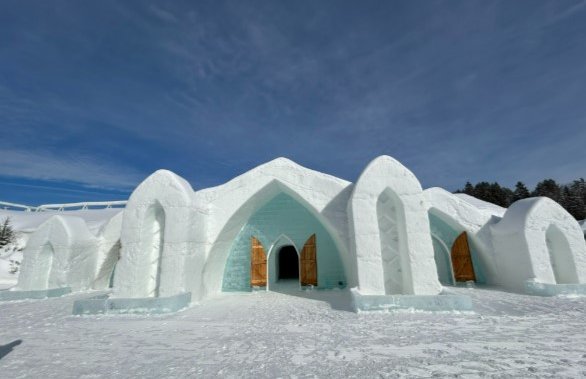The Hôtel de Glace, a remarkable ice hotel reconstructed annually in Quebec City, stands as a testament to human ingenuity and artistic expression. For over two decades, this ephemeral masterpiece has captivated visitors from around the world, drawing them to witness its transient beauty. More than just accommodation, the ice hotel represents a living, breathing artwork, a constantly evolving testament to creativity and resilience. Its existence contributes significantly to Quebec City’s reputation as a premier winter tourist destination, attracting thousands seeking a unique and unforgettable experience. The hotel’s fleeting nature, its dependence on the whims of winter, adds to its allure, underscoring the ephemeral beauty of the ice and snow.
Quebec City’s winter tourism thrives not only on the ice hotel’s appeal but also on the city’s overall charm and the diverse range of winter activities it offers. A growing awareness of Quebec City’s beauty and the exciting experiences it provides during the colder months has fueled a surge in visitor interest. This heightened popularity stems from several factors, including a favorable exchange rate for the Canadian dollar, which makes the destination more attractive to international travelers, particularly those from the United States. Targeted advertising campaigns focusing on the American market have further amplified Quebec City’s visibility, attracting a larger share of tourists eager to experience the Canadian winter wonderland.
However, the city’s reliance on winter tourism has also exposed its vulnerability to unpredictable weather patterns. The previous year’s unseasonably warm winter, the warmest on record, dealt a significant blow to the annual winter carnival, a cornerstone of Quebec City’s winter festivities. The unusually mild temperatures forced the premature closure of the carnival, dampening the enthusiasm surrounding its 70th-anniversary celebrations and highlighting the precarious nature of events dependent on consistent winter conditions. This experience underscored the challenges faced by destinations reliant on specific weather conditions and the need for adaptive strategies to mitigate the impact of climate variability.
Despite the current year’s return to more typical winter temperatures, organizers of the winter carnival and other winter events are taking a cautious approach. The memory of the previous year’s disruptions underscores the need for long-term solutions to ensure the viability of winter tourism. Recognizing the potential for future weather fluctuations, officials are exploring ways to modify infrastructure to create greater resilience against unpredictable weather patterns. This proactive approach involves investigating alternative strategies and technologies that can guarantee a more predictable and reliable winter experience, reducing the risk of cancellations and disruptions due to unforeseen temperature variations.
The pursuit of these adaptive measures reflects a growing awareness of the impact of climate change on tourism and the need for sustainable practices. The previous year’s warm winter served as a stark reminder of the vulnerability of winter destinations to climate variability. By seeking ways to mitigate these risks, Quebec City is demonstrating a commitment to long-term sustainability in its tourism sector. This forward-thinking approach aims to ensure the continued enjoyment of winter activities and events for generations to come, despite the potential for future climate-related challenges. The focus on infrastructure adaptation represents a vital step towards creating a more resilient and sustainable tourism industry in Quebec City.
The experiences of Quebec City, from the annual construction of the ice hotel to the challenges posed by unpredictable weather, highlight the complex interplay between tourism, climate, and human ingenuity. The ice hotel itself represents a triumph of human creativity over the ephemeral nature of ice and snow, while the efforts to adapt to changing weather patterns demonstrate the resilience of the tourism industry in the face of environmental challenges. These combined efforts underscore the importance of balancing the desire for unique tourist experiences with the need for responsible and sustainable practices that protect the environment and ensure the long-term viability of the tourism sector.

